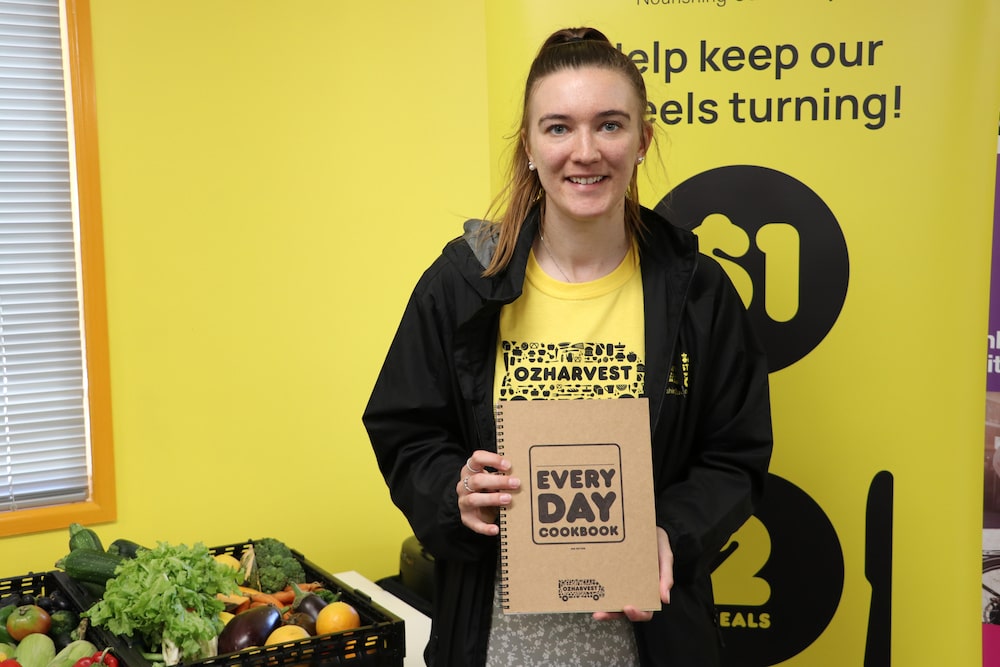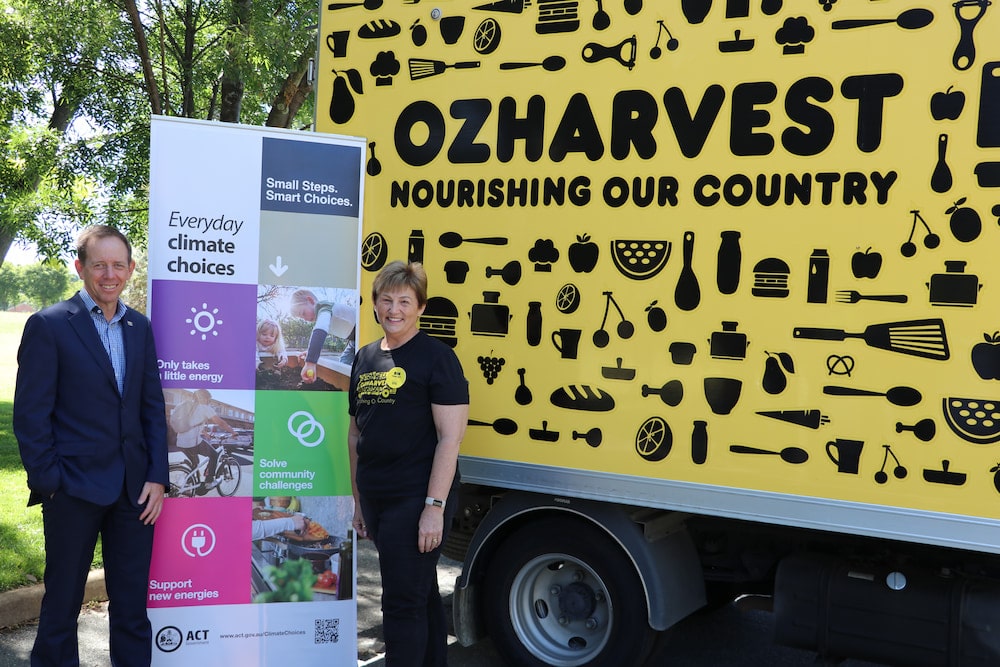Thanks to a grant five years ago, food rescue charity OzHarvest Canberra was able to divert 1.1 million kg of food waste from landfill and prevent the release of more than 2 million kg of greenhouse gasses. Now, the ACT Government’s Community Zero Emissions Grants are open once more, with $150,000 available in 2023 for community projects to reduce emissions.
“We know there are community groups out there, individuals, volunteers, who’ve got great ideas,” Shane Rattenbury, ACT Minister for Emissions Reduction, said. “The intent is to provide that bit of money that can help take it from a great idea to … something that’s delivered, rolled out, and making an impact in helping our community reduce its greenhouse gas emissions.”
$50,000 is available per single application, and up to $75,000 per joint application.
Since the grants began in 2017, the government has supported 29 projects focusing on sustainable transport, waste reduction, composting, recycling, renewable energy, home energy efficiency, or increasing the community’s resilience to the impacts of climate change, Mr Rattenbury said.
“We’ve had some terrific examples over the years … a real diversity of programs … from dance groups who sought to promote climate awareness through dance; the ReCyclery, who bring old bikes to life; groups like the Conservation Council and others who run programs to help people transition off gas into all-electric homes.”
- ACT community solutions to lower greenhouse emissions (12 May 2022)
For information on previously funded grant projects and how to apply, visit the Everyday Climate Choices website. Applications close 29 March.
OzHarvest Canberra’s story
OzHarvest Canberra received a grant in the very first round to install portable shelving and a walkie stacker (a walk-behind pallet truck with a mast that lifts pallets) in its Fairbairn warehouse.
Through improving their refrigeration, much less food goes to waste – a source of greenhouse gas emissions, Mr Rattenbury said.
“The Zero Emissions grant was of great assistance to us,” manager Belinda Barnier said. “More food can be saved; with more efficiencies and capacity, we can do more.”
That infrastructure meant the charity could rescue 14 per cent more food each month: nearly 31,300 kg of food waste prevented from entering landfill.
In the last year, the charity rescued 364,000 kg of healthy food – 70,000 kg more than the year before.
The walker-stacker, shelving, and refrigeration really made a difference during the pandemic, Ms Barnier said, when OzHarvest’s van drivers had to carry heavy loads by themselves.
The charity collects food from its 104 donors and distributes it to 73 local community groups. But demand from OzHarvest’s partner organisations has “absolutely skyrocketed”: an increase of 50 per cent.
Ms Barnier will apply for another grant in this year’s round. “There is ongoing need, and I will certainly apply for anything and everything that goes out there.
“We’d like to not be needed by the community – but there is waste, there are people in need, and there’s a skills shortage.”
Ms Barnier believes OzHarvest Canberra needs another van. The charity has only two vans, each purpose-built with a refrigerator section in the back “so we can deliver high quality food safely to those in need”, Ms Barnier said.
Each van collects 750 to 1,000 kg of food a day. One van goes north, the other goes south. But if one driver is off sick for the day, OzHarvest is out by 50 per cent. If there were one or even two more trucks, OzHarvest would only have to pay a 30 or 25 per cent catch-up rate, Ms Barnier said. At the moment, they are not able to collect all the food available; a third van would make a 50 per cent difference.
“If you would like 50 per cent more food picked up, we need another van here in Canberra,” Ms Barnier said.
“We want to save all of that food; we don’t want it going to landfill!”
She also dreams of a purpose-built facility where volunteers can meet and OzHarvest can hold classes, such as the NEST (Nutrition Education & Skills Training) program.
Nutritionist Claire Russell runs six-week NEST programs at Havelock House, the Early Morning Centre, needle exchanges, and the like, teaching people to manage their budgets and feed themselves wholesome meals.

Each session runs for two and a half hours: one hour covering nutrition education; another hour of cooking; and a half-hour meal.
The recipes come from OzHarvest’s Everyday Cookbook, and cost less than $3 a serve to make. Many use the same ingredients, so food does not get wasted. Most are vegetarian, using lentils and legumes. (Meat alternatives are more affordable, Ms Russell explains.)
The lentil curry is popular, Ms Russell says, while one participant said the sausage rolls (using bread wraps and grated vegetables) were the best she had ever tasted.
Her clients include people of low income and low socio-economic status; people in rehabilitation programs, mental health residences, and domestic violence shelters; and people using community food pantries. Last year, OzHarvest piloted a youth program.
This year, Ms Russell plans to deliver 18 programs – the most since the COVID pandemic hit the community.
“NEST benefits everyone from any walk of life,” she said.
For more information about NEST, or to donate, visit OzHarvest Canberra’s website.



